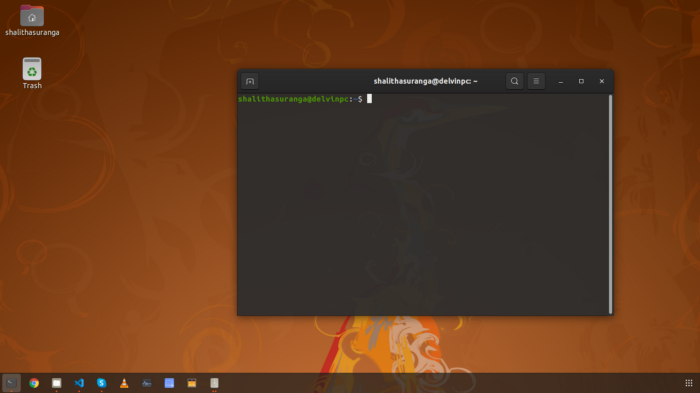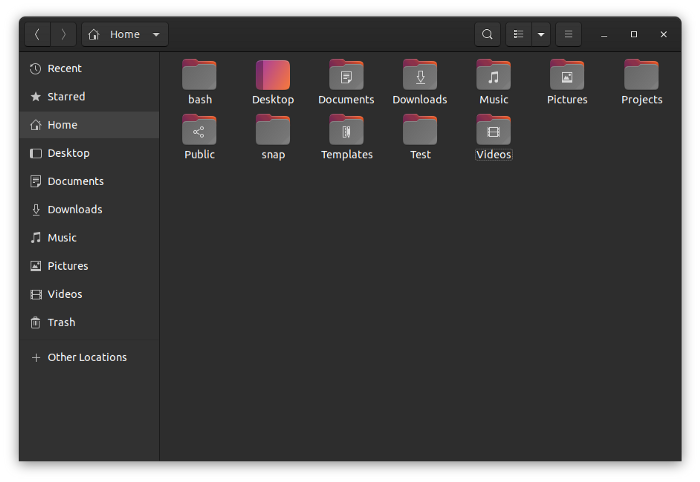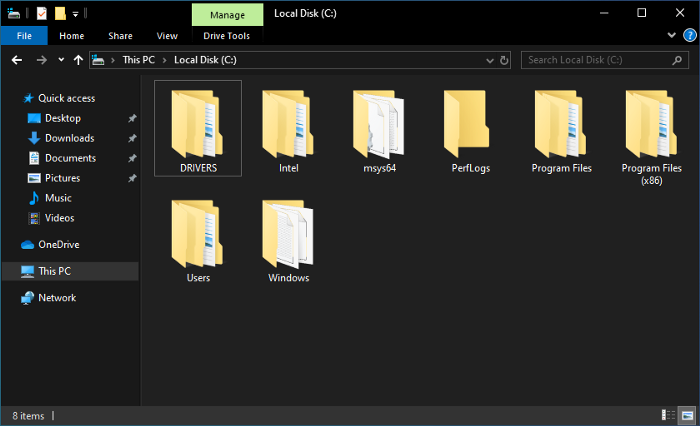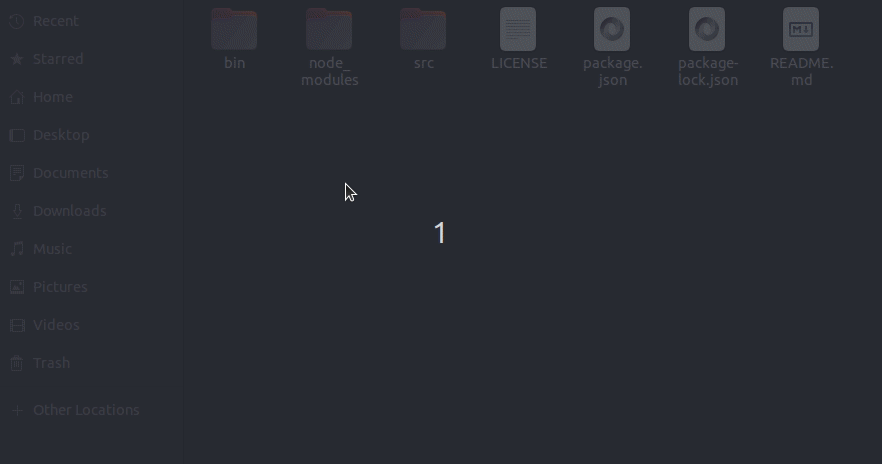 Author | Shalitha SurangaEditor | Wan JiaTranslator | Zhang JianxinI am a fan of Windows 98, 2000, XP, 7, and 10. However, I ultimately decided to use Ubuntu permanently.
Author | Shalitha SurangaEditor | Wan JiaTranslator | Zhang JianxinI am a fan of Windows 98, 2000, XP, 7, and 10. However, I ultimately decided to use Ubuntu permanently.
My Ubuntu Desktop

Without an operating system, a computer becomes a worthless device, as the operating system serves as the intermediary interface between the user and the hardware. People choose operating systems based on their preferences and what they want to do. Additionally, some people have to use the operating system that comes with their preferred hardware (for example, macOS that comes with Apple computers).
My first computer was a Pentium II. When I bought it, it came with Windows 98. After that, I used Windows 2000 for a few months. Like most die-hard Windows fans, I used Windows XP and Windows 7 for a long time.
Before fully switching to Ubuntu, my favorite operating system was Windows 10. As everyone says, the fact that it is free is a major factor in choosing a Linux distribution over a proprietary operating system. However, Windows was fine for me until they modified the graphical user interface for Windows 7.
I switched to Linux mainly for the following reasons.
1Stability and Performance

Windows 10 requires at least 8GB of physical memory to run the operating system properly, but having 16GB of physical memory is indeed very helpful when running multiple applications simultaneously. On the other hand, the latest version of Ubuntu runs well with just 4GB of memory, consuming less memory than Windows 10.
I personally believe that the system architecture of the latest version of Windows is somewhat chaotic, as most components and modules appear bloated and consume too much memory. I guess the main reason is that Microsoft is trying to update existing core components by inserting new modules after Windows XP.
Windows XP only needed 128MB of memory to run faster than Ubuntu. For example, some parts of the operating system consist of brand new modern UI elements (UWP), while others still use the old Windows 7 style UI elements.
In fact, Ubuntu has done a good job of separating the UI from the system core. Tools that are used less frequently do not have a graphical user interface provided. Additionally, Ubuntu does not install everything during setup but allows users to install what they need when they have specific requirements.
On the other hand, Windows ignores low-end devices. There is no doubt that the Windows update mechanism is a headache for users, while Linux’s system updates are smoother and more user-friendly. Surprisingly, the newly introduced Ubuntu LivePatch can even update the kernel without requiring a reboot.
https://ubuntu.com/security/livepatch
2Minimalism and Futuristic Design
The latest version of Ubuntu includes the GNOME desktop environment, which is my favorite. GNOME has a minimalist and futuristic design with consistent UI elements everywhere. Importantly, features like desktop icons and workspaces are provided as extensions, with many extensions available for installation based on your preferences. GNOME essentially gives us what we truly need, rather than an overly complicated interface.
https://www.gnome.org/
For example, just compare the file management applications on Ubuntu and Windows.

File Manager on Ubuntu (GNOME)

File Explorer on Windows
3Developer-Friendly Environment
You either spend money on macOS, or you learn to try Linux, or you use Windows as another type of computer user.
Compared to Windows, Linux does require some technical knowledge to get started. However, the Canonical team seems to be working hard to improve Ubuntu by providing things like the Ubuntu Software Store to meet the needs of general computer users. However, the developer-friendly environment is a major reason I switched to Ubuntu. Ubuntu has very useful built-in tools: the GNU C/C++ compiler collection, and more.
Moreover, it runs containerization tools like Docker more efficiently than Windows, as the Linux architecture supports the concept of containerization better than Windows. The Linux ecosystem encourages us to use command-line tools in various scenarios.
Even a simple menu option in the context menu can greatly inspire developers.

Open menu option in Terminal on Ubuntu
4Security
In fact, security is a major concern for any digital platform. Wherever we go, we have faced at least one malicious attack. When I was using Windows XP, I encountered issues caused by the Brontok virus. It would always open a web page every few minutes. Nowadays, most malware attempts to steal personal data, raising concerns about the security of our operating systems, which we need to think carefully about.
https://en.wikipedia.org/wiki/Brontok
Compared to Windows, Linux still has a very small market share (~2%) among general users. Therefore, there is not much malware targeting Linux users. Meanwhile, about ~78% of personal computer users running Windows are targeted by malware creators.
Operating system security is not just about malware. Authentication, hardware protection, and network security are also part of operating system security. The source code of Ubuntu has been released as an open-source project. Therefore, unlike Windows, Ubuntu is more likely to detect system vulnerabilities because the community can participate in the source code.
5Conclusion
Now, everything is moving towards a cloud ecosystem, and this is inevitable. Therefore, the operating system has become an agent that fills the gap between users and hardware. Computer hardware is also becoming cheaper and more powerful.
Moreover, hybrid applications are replacing native applications that are closely tied to the operating system. Therefore, for the average user, it does not matter which operating system runs on their computer. However, as developers, we are very concerned about this.
Original link:
https://medium.com/swlh/why-i-switched-to-linux-after-using-windows-for-10-years-247de78058ef
Today’s Recommended Article
Click the image below to read

Pinduoduo version of Didi, how long can Huaxiaozhu still be “fragrant”?